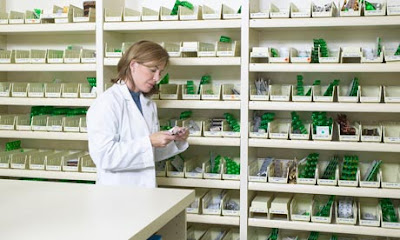Why a pill just won't cut it
You can't turn on the television, open a web browser, or read the newspaper without an advertisement or study telling you a new way to be healthy. One study says chocolate will help you lose weight, another says it's all genetic anyway - how do you ever know what to believe? One way to think about it is to think about a time not too long ago before fad dieting and obesity were daily topics of conversation. How did your grandmother eat? How did her mother feed her? Many believe our ancestors were much healthier than we are today, and one way to boost our own health may be to mimic those diets. One thing they certainly didn't consume back then: dietary supplements and vitamins.
It may seem like popping a calcium pill is a great, easy way to get your nutrients. Maybe it even sounds more appetizing than having some yogurt. But did you know that a study by the British Medical Journal found a connection between taking calcium supplements and thirty percent rise in the risk of suffering a heart attack. That risk was not seen in those who got their calcium the old fashioned way - by ingesting it in their food - or in people who also took vitamin D with their calcium.
Another major drawback of going the supplement route is the risk that you will encounter adverse side effects. One report found that excessive amounts of vitamin A supplements can cause headaches and birth defects, lower bone strength and can even cause liver damage. Zinc has been associated with nausea, vomiting, and internal organ damage.
Supplements can also have interactions with your prescription medications. For example, blood-thinning medication and vitamin K can be a dangerous combination, potentially increasing risk for blood clots. Vitamins E and C may decrease the effectiveness of chemotherapy. So if you're taking a prescription and you add a dietary supplement to your daily regimen, you may find yourself experiencing some unexpected and unpleasant reactions.
What does all of this tell us? It's hard to say exactly, except that when you pop a pill, you don't really know what the effects will be. Something else you don't know: what's actually in that pill. While the Food and Drug Administration and the United States Department of Agriculture technically regulate what can and cannot appear on a food label, there is no government regulator out there keeping track of what a dietary supplement's label out there. So the health claims made on those bottles could be - and some likely are - entirely made up out of thin air. Is that the kind of product you want to buy? Probably not.
The truth is that we can get all the nutrients we need by eating a balanced diet that relies on a variety of foods and food groups. And food offers a lot of great things that you can't buy in a pill. It brings people together; it teaches us about new cultures; it tastes good. Why would you want to skip all of those benefits for a questionably beneficial supplement? Especially when that supplement comes in a non-regulated bottle and costs money? Do yourself, your wallet, and your taste buds a favor and skip that morning dose.
About the Author: Steven Madison freelances about health-related topics for this website. He's a personal trainer who has seen one too many diets based on supplements go terribly wrong.
It may seem like popping a calcium pill is a great, easy way to get your nutrients. Maybe it even sounds more appetizing than having some yogurt. But did you know that a study by the British Medical Journal found a connection between taking calcium supplements and thirty percent rise in the risk of suffering a heart attack. That risk was not seen in those who got their calcium the old fashioned way - by ingesting it in their food - or in people who also took vitamin D with their calcium.
Another major drawback of going the supplement route is the risk that you will encounter adverse side effects. One report found that excessive amounts of vitamin A supplements can cause headaches and birth defects, lower bone strength and can even cause liver damage. Zinc has been associated with nausea, vomiting, and internal organ damage.
Supplements can also have interactions with your prescription medications. For example, blood-thinning medication and vitamin K can be a dangerous combination, potentially increasing risk for blood clots. Vitamins E and C may decrease the effectiveness of chemotherapy. So if you're taking a prescription and you add a dietary supplement to your daily regimen, you may find yourself experiencing some unexpected and unpleasant reactions.
What does all of this tell us? It's hard to say exactly, except that when you pop a pill, you don't really know what the effects will be. Something else you don't know: what's actually in that pill. While the Food and Drug Administration and the United States Department of Agriculture technically regulate what can and cannot appear on a food label, there is no government regulator out there keeping track of what a dietary supplement's label out there. So the health claims made on those bottles could be - and some likely are - entirely made up out of thin air. Is that the kind of product you want to buy? Probably not.
The truth is that we can get all the nutrients we need by eating a balanced diet that relies on a variety of foods and food groups. And food offers a lot of great things that you can't buy in a pill. It brings people together; it teaches us about new cultures; it tastes good. Why would you want to skip all of those benefits for a questionably beneficial supplement? Especially when that supplement comes in a non-regulated bottle and costs money? Do yourself, your wallet, and your taste buds a favor and skip that morning dose.
About the Author: Steven Madison freelances about health-related topics for this website. He's a personal trainer who has seen one too many diets based on supplements go terribly wrong.




Yeah but people will keep trying it anyways because they're lazy.
ReplyDelete